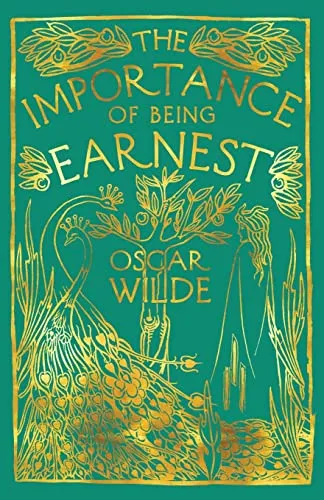The Importance of Being Earnest
A Trivial Comedy for Serious People
(Author) Oscar WildeThe Importance of Being Earnest is perhaps Oscar Wilde's most popular play - since its first performance in 1895, it has seen countless productions and three film adaptations, and, in the words of the journalist Mark Lawson, is 'the second most known and quoted play in English after Hamlet'. Brimming with the counter-intuitive wit with which Wilde's name is synonymous, the play follows two young men, Algernon and Jack, as they come to grips with one another's 'Bunburying' - deceits involving invented identities and escaping unwanted socialising - which spiral out of control. Culminating in a hauntingly brilliant scene with a cast of characters dripping with satire, an unpublished manuscript and an unforgettable handbag, The Importance of Being Earnest lambasts the Victorian yearning for morality and meaning, and leaves the reader aching for an encore.
Oscar Wilde
Oscar Wilde was an Irish playwright, novelist, and essayist known for his wit, flamboyant style, and sharp social commentary. His most famous works include the play "The Importance of Being Earnest" and the novel "The Picture of Dorian Gray," both of which explore themes of identity, morality, and societal expectations. Wilde's writing is characterized by clever wordplay, satirical humor, and a keen observation of human nature. He was a key figure in the aesthetic and decadent movements of the late 19th century and is considered one of the most important voices in British literature. Wilde's impact on literature can be seen in his subversion of conventional Victorian norms and his pioneering use of irony and paradox.











